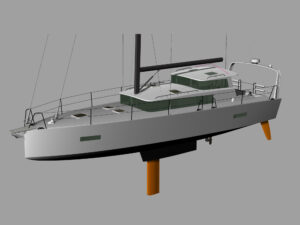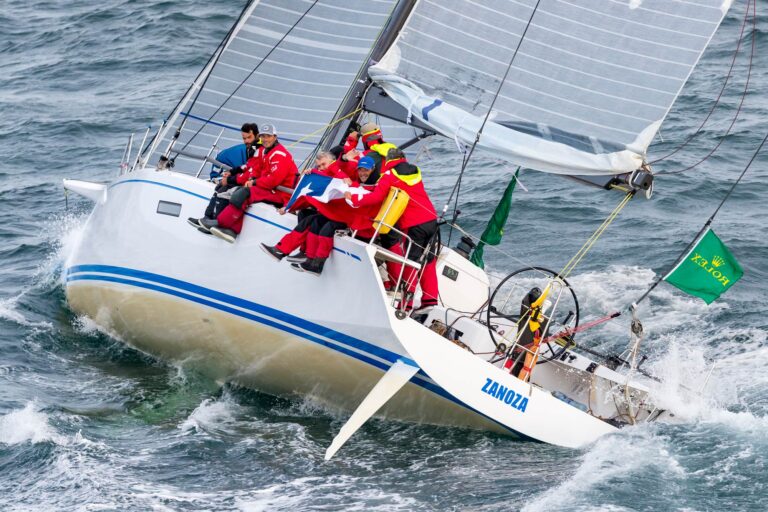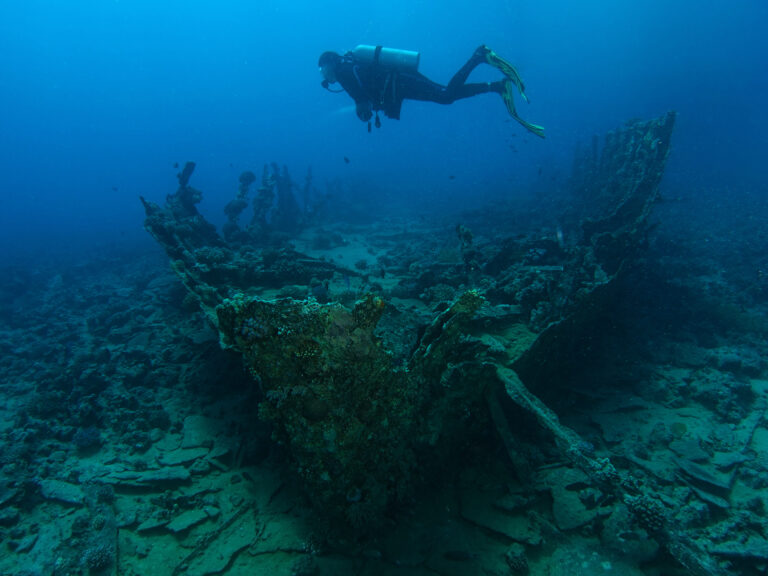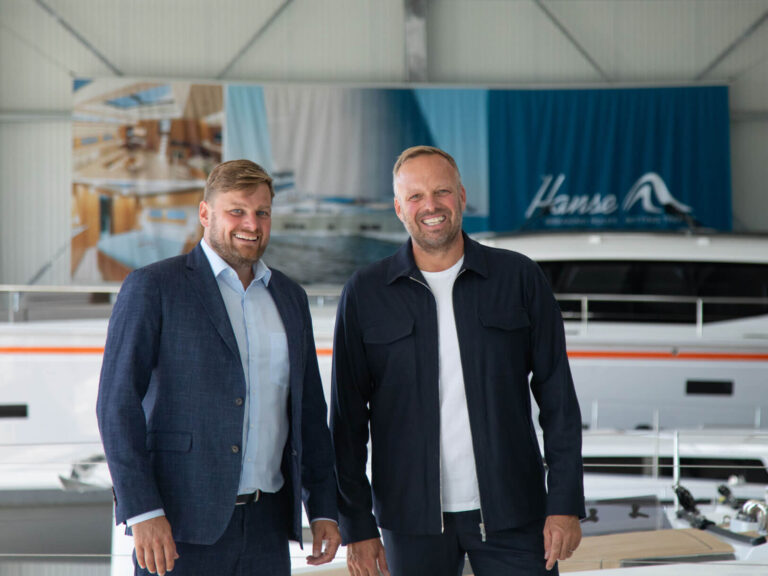
In the last week there’s been a minor zeitgeist in my world on the topic of making money while cruising. Most cruisers are not independently wealthy, but progressively eroding a finite pile of savings for the journey. And lately, it seems like a growing number of cruisers anticipate generating income as they go and relying on that to fund their travels. And even those living on sabbatical savings are happy for a bit of income to extend the runway of their adventures.
It started with this question: “I love to make and bake pizzas… I am Italian… and I am thinking to sail the world and sell my pizza while at the anchor in the bay to the other yachties. Do you think I need any kind of license?” This is problematic in a few ways.
I’d love to savor a pizza made by an Italian in a faraway anchorage. As hopeful cruisers form plans for earning as they go, I can understand how this person arrived at a notion for using his skills. But there’s a roadblock to working while cruising the Italian, like other dreamers, seems to get forgotten, or ignored, or at least that’s the theme of my recent conversations. There are rules to follow; it’s not a free market utopia.
The tipping point was a conversation yesterday morning that left me feeling frustrated for a friend, angry about the bad information she and her partner – a marine tradesman – had been sold about their opportunities. “When we were in [homeport] all those years, everyone said with these skills (rigging, marine electronics, etc.) we’d have work all the time anywhere in the world, they never talked about running into legal problems.”
The Myth of Working Along The Way
Cruising may be a lifestyle steeped in freedom, but it doesn’t liberate you from playing by the rules – and doing income-generating work comes with rules. One oversimplified way to gauge if the work you hope to do runs to local regulation: will you be marketing and selling your product or services locally? Will there be people from this country, or people with legal authorization to work in this country, selling the same product or service? If the answer to either of those is “yes,” do homework on regulations and proceed appropriately.
The marine trade skills our friend above has? In many ports here in Mexico, there are a plenty of Mexicans with those skills, who would like that work. He doesn’t have a business license, and it would take time and money to get one. You could try for some cash on the side, but it’s not something to build regular income on or count on to feed your family.
The Italian hopeful was provided useful information in a forum: yes, you need not just “any kind” of license but probably a range of permissions, permits, and licensing – none of which are guaranteed, and will take time and money to acquire. But I’m sad that our friends already out here cruising were misled during their planning years. Life on a sailboat, pointed at the blue horizon, going where the wind blows (can I lay it on any thicker?) – yes, is easily founded on romanticism. The problem is when the romantic ideal meets cold reality. And now a young family is having a really tough time because they were given bad information by others sold on the romantic view of cruising, one which is pervasive enough that the facts never crept into their sphere.
Why Does This Misinformation Persist?
I suppose that the freedom we have makes it easy to forget that there are still rules to play within. I’m guilty to waxing on about the intoxicating freedom of cruising, but it’s true. It has ruined me for living a bounded “normal” life, and I definitely talk about is as one of the great benefits of cruising.
I think in romanticizing cruising, and romanticizing how little is needed to live our simple life, these fundamental and important details are omitted in the narrative. A perfect example is this lovely, and real, and typical reflection in the NY Times article eulogizing Larry Pardey last year. “They did not adhere to a schedule and worked only enough to finance their sailing. Their circumnavigations took so long because they spent a lot of time exploring 15 of the countries they visited and using them as income-producing bases of operations, repairing and restoring boats and ferrying them to their owners.” Absent here and other references to the Pardeys in popular media: their writing describes seeking legal authorization to work internationally. It’s just not how the stories are usually passed on, and I think that’s what’s hurting our friends here in Mexico.
The Reality of Working in Foreign Country
One of the most important things we can do as cruisers is be respectful of the country that is hosting us as guests. We are free, we are unfettered… not so fast! We also have a responsibility to be aware and respectful of local laws, which depend on the country and the business. But it is probably a work permit, or a type of visa that allows you to work, and whatever local laws exist for licensing or insurance (or food safety, for our Italian). Getting these takes time, and money, and may not be possible simply because you are not a national of that country.
Real Examples
When I worked in Australia in 2011-2012, a company in Australia had to sponsor me for a work visa. That cost them legal fees, government paperwork, and required commitment on all sides. Only specific categories of employment—those skillsets which were scarce in Australia—could qualify for a work visa.
Two cruisers who recently set up shop in Grenada are the doctors Conant, or as we know our friends, Don and Lisa. They’re chiropractors who after some years cruising in the Caribbean have paused to boost the kitty and practice their craft, improving the health of others. Gaining approval for their business took five months—”I’m told that’s fast,” Don quips—and a Grenadian attorney (I’m afraid to ask the cost) to get their business license. The clinic’s name? Kraken Chiropractic, of course.

They unlocked my shoulder in 2016 and I would love to work out some COVID strain kinks now, lemme tell you…
Working Illegally
What if you decide to throw out a shingle or pass the word on the morning VHF net, and work anyway? Being caught can mean having heavy fines and getting deported. The Boat Galley’s Carolyn Shearlock commented “when we were cruising in Mexico, we saw several cruisers get hit with fines over $1,000, and one be deported.” In some places, should local providers feel you are horning in on their business, retribution may be… informal, or even violent, as we heard about in Thailand.
Gray Zone Territory
There is some matter of scale, here. Sometimes, you’re the only game in town and provide a service that nobody else can – one that the beneficiary would happily pay a provider for if possible. There’s a delicate line to walk for when that goes from “just helping out because cruiser karma is always good to bank” and “this is a professional skill that warrants compensation.”

We run into this with Jamie’s skills as a rigger and sailmaker. We are in Mexico on tourist permits, do not attempt to have a business in Mexico, and will send cruisers toward local pros when possible. Jamie does a lot of rig and sail checks because he can, and because there usually isn’t anyone else qualified around. It’s what cruisers do for each other: we share from our relative skills and supplies to help out the folks around us. Cruiser karma is real!
But sometimes, it really does cross a line. When and how you move from karma service to paid work is a unique judgement call, but must always have the lens of avoiding the intimation of operating an unauthorized business.
Working Legally Almost Anywhere
What’s not really covered here is that working as a digital nomad means flying pretty much under the radar and requirements of countries cruisers pass through. Freelance writing, remote coaching, sail consulting – these are the income streams that support us. Our obligations are reporting that income to the US Internal Revenue Service; check. There are myriad ways to earn income online that aren’t subject to infringing on the countries we enter on tourist visas.
To the friend who said – “maybe you should write an article on the subject to dispel the notion that trade skills are easily used while cruising, or [that finding work is] at least hard to navigate” – here it is, and I wish I’d written it sooner.
Upcoming Events

Storms, Pirates and Unicorns: stories from a voyaging life. We’re kicking off the Ocean Cruising Club’s winter seminar series on Thursday at 12pm PT / 3pm ET, and it’s open to ANYONE, not just OCC members! Register here for salty storytelling.
Rigging Fundamentals (Thursday, Feb. 18): Interest piqued by our recent post about DIY rig checks? Consider it a preview of his rigging for cruisers session as part of Salty Dawg Sailing’s winter seminar series! Register on Salty Dawg Sailing!
Missed our TOTEM TALKS ON marine diesel engines? Catch the replay! See what a sailmaker knows about marine diesels after 13 years of full-time cruising (spoiler: a surprising amount, out of necessity). Access it here: Marine diesel TLC for cruisers.








